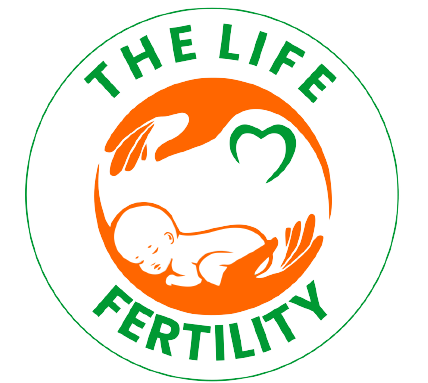Starting a family is a deeply personal journey, and sometimes, life throws a few curveballs along the way. Whether you’re facing a medical condition, planning to delay parenthood, or simply want to explore your options, fertility preservation can offer a sense of hope and control over your future family plans.
But before you embark on this journey, it’s natural to wonder: “What are the fertility preservation success rates?” The truth is, success rates can vary depending on several factors, and it’s important to understand what influences those outcomes.
This guide is designed to be your trusted resource as you navigate the world of fertility preservation. We’ll explore the different factors that can affect success rates, discuss various preservation methods, and answer common questions you might have. Our goal is to empower you with the knowledge you need to make informed decisions about your family’s future.
Factors Affecting Fertility Preservation Success Rates
Fertility preservation offers a powerful way to protect your ability to have children in the future, but it’s important to understand that success rates aren’t one-size-fits-all. Several factors can influence the outcome of fertility preservation procedures, and knowing what these factors are can help you make informed decisions and set realistic expectations.
Age and Fertility Preservation Success Rates
Age is a significant factor when it comes to fertility preservation success rates. For women, egg quality and quantity decline with age, particularly after the mid-30s. This means that younger women generally have higher success rates with egg freezing and embryo freezing compared to older women. For men, sperm quality can also decline with age, although the impact is generally less pronounced than in women.
Health and Lifestyle Factors
Your overall health and lifestyle choices can also play a role in fertility preservation success rates. Conditions like smoking, excessive alcohol consumption, obesity, and certain medical conditions can negatively impact both egg and sperm quality. Maintaining a healthy lifestyle before and during fertility preservation can improve your chances of success.
Type of Fertility Preservation Procedure
The type of fertility preservation procedure you choose will also influence success rates. Embryo freezing generally has higher success rates compared to egg freezing, as embryos tend to survive the freezing and thawing process better than individual eggs. However, embryo freezing requires that you have a partner or use donor sperm.
Clinic and Technology
The experience of the clinic and the technology used can also impact fertility preservation success rates. Look for a clinic with a proven track record, experienced specialists, and state-of-the-art facilities. Advanced freezing techniques, such as vitrification, can also improve the survival rates of eggs and embryos.
Understanding these factors can help you have a more informed conversation with your doctor about your fertility preservation options and what to expect. It’s important to remember that success rates are just one piece of the puzzle. Your individual circumstances, medical history, and personal goals will all play a role in your fertility journey.
Fertility Preservation Success Rates for Women
If you’re a woman considering fertility preservation, it’s natural to want to know the success rates of different procedures. Here’s a breakdown of the most common options and what influences their outcomes.
Egg Freezing Success Rates
Egg freezing, also known as oocyte cryopreservation, involves retrieving eggs from your ovaries, freezing them, and storing them for future use. The success of egg freezing depends on several factors, including:
- Age: Younger women generally have higher success rates because their eggs are typically healthier and more likely to survive the freezing and thawing process.
- Number of Eggs Frozen: The more eggs you freeze, the higher your chances of having a successful pregnancy later.
- Clinic and Technology: The experience of the clinic and the technology used for freezing and thawing can also influence success rates.
While success rates vary, studies suggest that women under 35 who freeze a good number of eggs have a reasonable chance of achieving a live birth using those eggs in the future.
Embryo Freezing Success Rates
Embryo freezing involves fertilizing retrieved eggs with sperm and freezing the resulting embryos. Embryo freezing generally has higher success rates than egg freezing because embryos tend to be more resilient to the freezing and thawing process.
Factors that can influence embryo freezing success rates include:
- Embryo Quality: The quality of the embryos at the time of freezing is a significant factor.
- Uterine Receptivity: The health and receptivity of the woman’s uterus at the time of embryo transfer also play a role.
Overall, embryo freezing offers a good chance of successful pregnancy for women and couples who choose this option.
Ovarian Tissue Freezing Success Rates
Ovarian tissue freezing is a newer and less established technique compared to egg and embryo freezing. It involves surgically removing a portion of the ovary and freezing it for future use. While this technique is still experimental, it offers hope for preserving fertility in younger women and girls who haven’t reached puberty or cannot undergo ovarian stimulation.
Understanding Success Rates and Your Fertility Journey (200-250 words)
Fertility preservation success rates can seem like a complex topic, and it’s important to understand how to interpret this information in the context of your own fertility journey.
Interpreting Success Rates
When you see statistics about fertility preservation success rates, it’s crucial to remember that these are just averages. They represent the outcomes of a large group of people and may not accurately reflect your individual chances of success. Your age, medical history, lifestyle, and the specific procedures you choose will all influence your personal outcome. The best way to understand your individual chances of success is to discuss your specific situation with a qualified fertility specialist. They can assess your unique circumstances and provide you with a more personalized estimate.
Managing Expectations
While fertility preservation offers hope and the possibility of having children in the future, it’s essential to have realistic expectations. Fertility preservation does not guarantee a successful pregnancy. There are inherent risks and limitations associated with all medical procedures, and fertility preservation is no exception. However, it significantly increases the chances of having biological children later in life. Openly discuss your concerns and expectations with your fertility specialist. They can provide you with a clear understanding of the potential benefits and limitations of fertility preservation, helping you make informed decisions and navigate your fertility journey with confidence.



